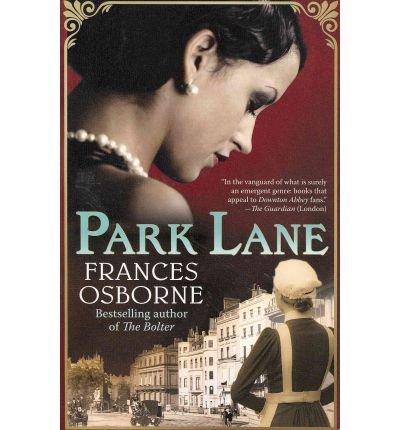Park Lane
This novel has its origins in Frances Osborne’s own family background, and an inevitable comparison to the TV series Downton Abbey will either help or hinder it, depending on the reader’s own feelings about the big-house genre.
Same era, similar cast. Upstairs, Bea is the 1914 equivalent of a Sloane Ranger with a thwarted love life and too much time on her hands. Downstairs, Grace is the practical and clever lass who aspires to more in life than housemaid’s knee. Bea secretly joins the suffragettes to find purpose and meaning, while Grace has her own secrets and lies to negotiate. All lives are altered drastically by World War I. Bea nobly goes forth to drive ambulances, while Grace battles on after a tragedy that would crush anyone with less North Country grit. She also has to deal with the predictable outcome of her own particular method of helping the war effort.
No new ground has been broken here. The effects of war trauma on everyone are as expected. The women test and stretch themselves to fit the changing times, but the male characters retain their stiff upper lips and so relationships stumble on, vague and unsatisfying. The coincidental link between Bea, Grace, and her brother Michael is stretched to the limit and by the conclusion is a damp squib.
The gushing, breathless writing style can also seem as frivolous as debutante chatter and draws attention away from weighty ideas and issues that might have had greater impact with a different approach. The best part of the book is in the detailed descriptions of the secret operations of Mrs. Pankhurst and her movement.
Revel in it if you’re a fan. Otherwise just grin and bear it and think of dear old England.










